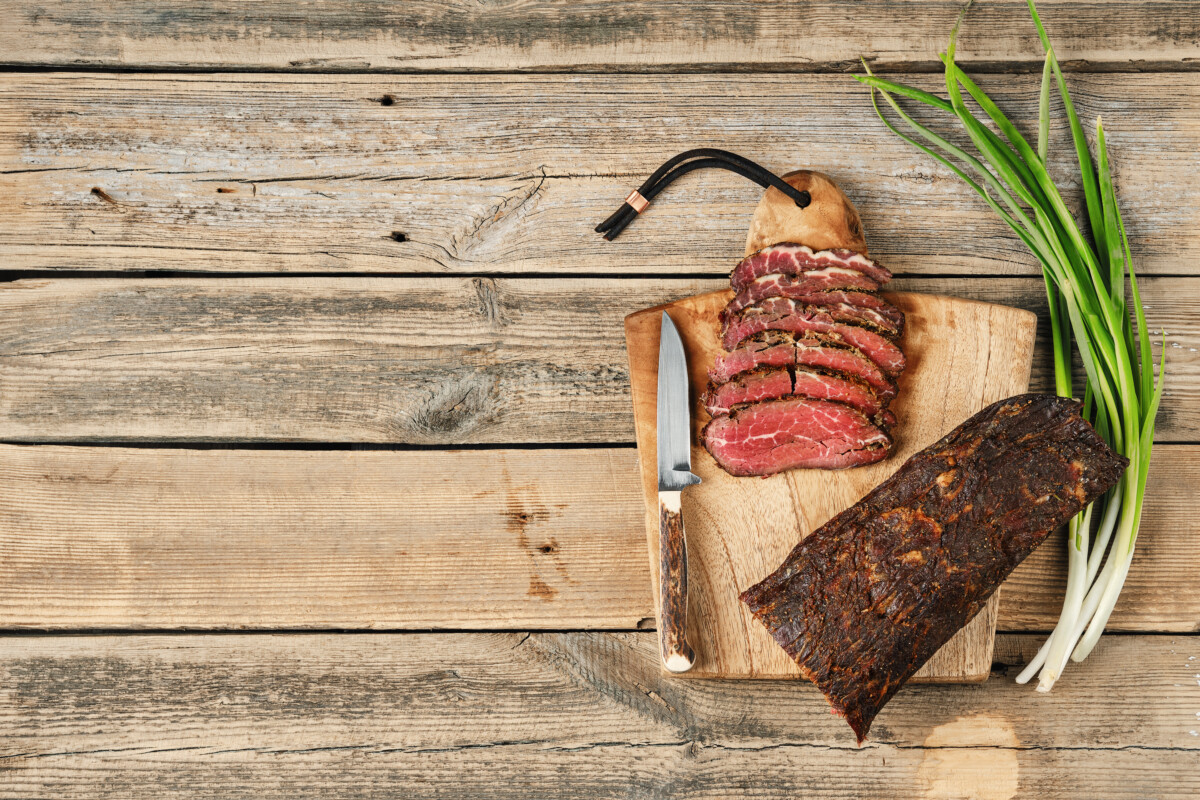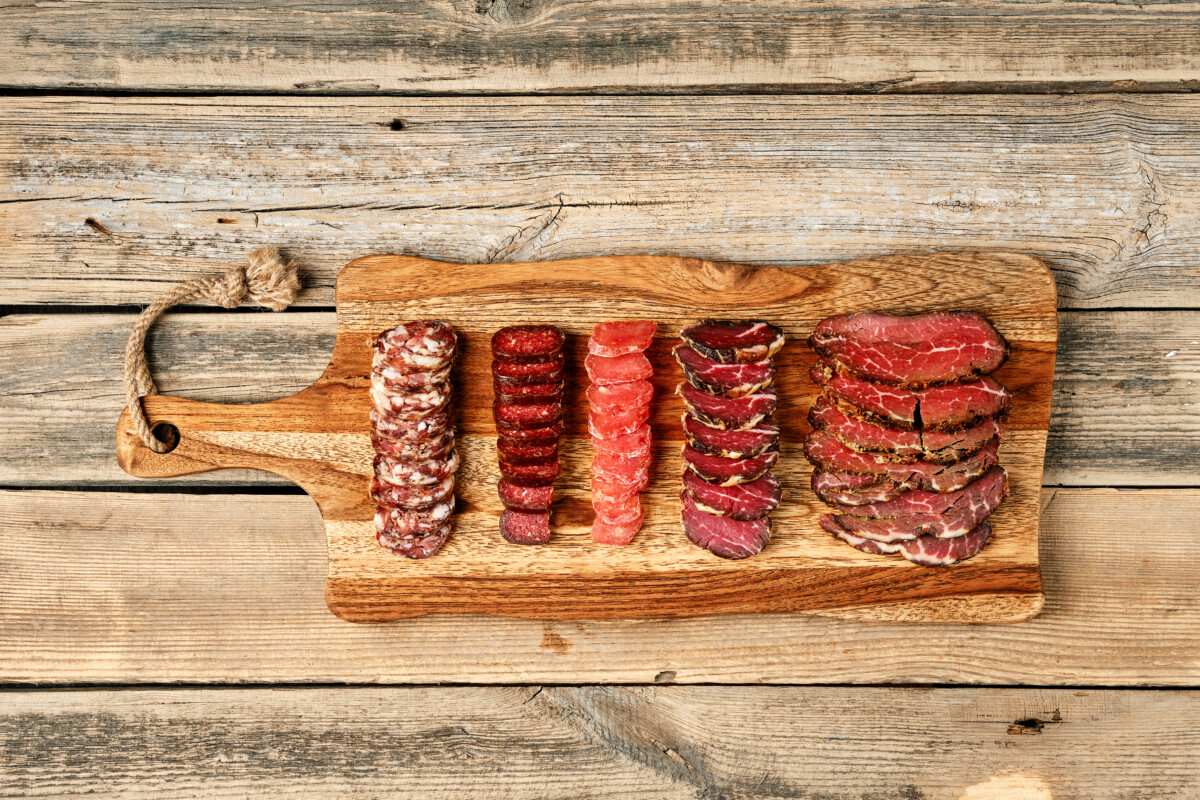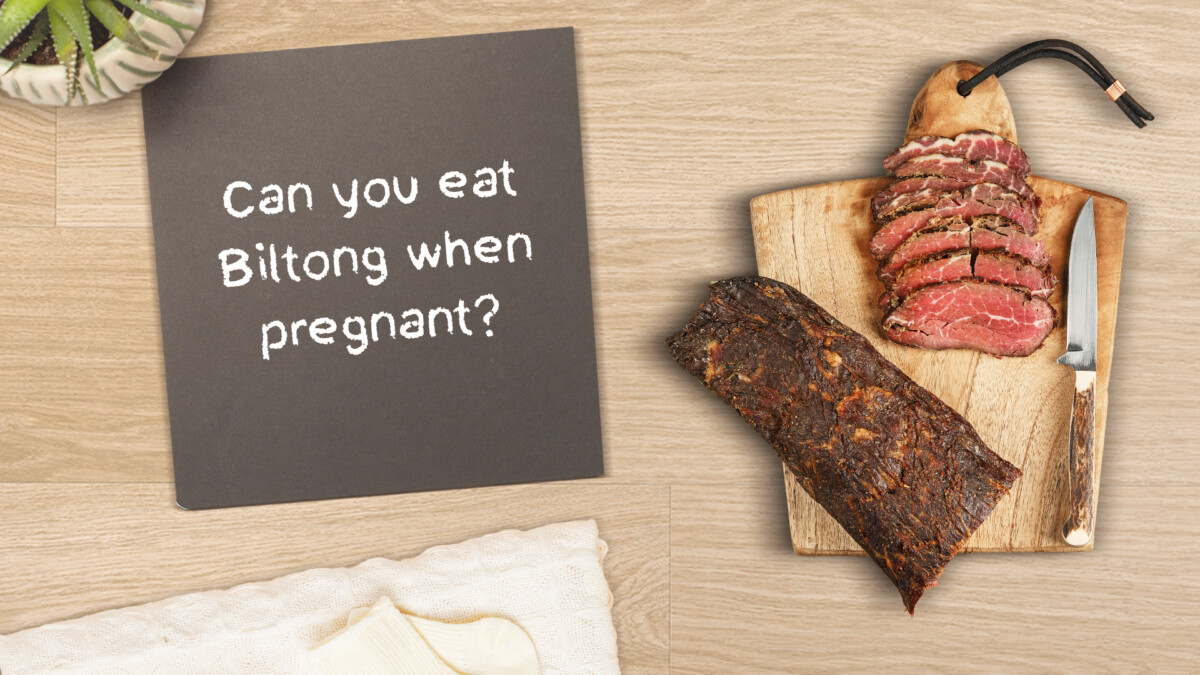People adore a wide variety of foods, but it’s crucial to understand whether or not they are safe to eat, especially while pregnant. Biltong, which is a kind of meat, is one of those foods that raise some eyebrows.
Can you eat biltong when pregnant? To best help mothers-to-be, I will provide all the information you require about this topic in this article. Let’s find out if eating biltong while pregnant is safe or not!
Main Points
- Biltong is one of the types of meat that many people doubt eating, especially during pregnancy!
- Biltong isn’t the best meat to eat when you are a mom-to-be! Let me advise you to avoid it as much as you can!
- The ingredients used in biltong are salt, vinegar, black pepper, and coriander!
- Just as it has disadvantages for pregnant women, biltong is known to have its benefits too.
Can You Eat Biltong When Pregnant?

Many people are skeptical about whether biltong is safe to consume while pregnant, and it appears that they are on the right track because biltong isn’t the safest food to eat while pregnant, so you should avoid it!
Yet again, there is something that you should know about, and it includes women that are in their third trimester!
Biltong is a type of food that many expecting mothers eat during the third trimester of their pregnancy, and they say it helps the muscles of both the mom and the baby! If you choose to eat, make sure not to eat much, everything in a massive form causes damage!
Also Read: Wether You Can Eat Black Pudding When Pregnant?
What is biltong exactly?
Biltong is a type of meat that has an interesting form of preparation! Biltong includes cured and dried pieces of meat you take from beef and let dry! It originates in South Africa, and it is known as a meat snack in general. Biltong includes a lot of salt, vinegar, black pepper, and coriander.
Why Is Biltong Off Limits During Pregnancy? – Main Reasons
As said above, biltong isn’t a type of food one can frequently eat during pregnancy, but it is essential to mention some of the main reasons an expecting mother should avoid it! Let me tell you those reasons.
Bacteria and Parasites
Toxoplasmosis, a disease brought on by parasites in the meat, can be contracted from a piece of parasite-infested, uncooked meat like biltong. It’s vital to note that toxoplasmosis can quickly cause blindness.
The listeria bacteria that can be present in biltong is another crucial thing to keep in mind! Listeriosis, a significant infection that produces fever, muscle aches, and diarrhea, can be caused by listeria and can be fatal.
Premature delivery, stillbirth, infection that poses a life-threatening risk to the baby, and miscarriage are all possible outcomes of infections in a pregnant woman’s body, all because of biltong.
Salt
I mentioned above that biltong is a snack made of salt as one of the main ingredients. Too much salt in a pregnant mom’s body indeed makes some difference. A mother-to-be lady should never have too much salt as it leads to high blood pressure, stroke, kidney stones, and many others.
By the way, too much salt damages everybody and not only pregnant women!
Vinegar
I mentioned above that vinegar is also a prominent component in making biltong. However, you also know how harsh vinegar is. In a mother-to-be, the mixture of vinegar and a piece of uncooked meat, such as biltong, can have many negative effects. These issues include decreased potassium levels, harmed teeth, and digestive system issues.
Black Pepper and Coriander
Black pepper and coriander are two other ingredients that conclude biltong meat. Unlike salt and vinegar, these two components aren’t the riskiest ingredients to eat, but when you combine them in large amounts with salt and vinegar that are very harsh, they can lead to abortion, so you have to be very careful!
Also Read: Wether You Can Eat Pizza When Pregnant?
Is Biltong Beneficial in Any Way?

I know that above I mentioned many reasons why a pregnant woman should avoid eating biltong, but still, something else I want to mention includes the benefits that biltong offers to people. Not the pregnant ones!
Jokes aside, biltong is known as a beneficial food or snack to eat, and there are some great things that it offers you!
Biltong includes a lot of protein, is low in fat, creatine, and zinc, and also, it includes vitamin B12.
Proteins
This type of meat includes 40 grams of proteins in only 100 grams of meat! All this protein helps you grow healthy muscles and a healthy brain too.
Fat
As mentioned above, biltong is very low when it comes to fat! 100 grams of biltong includes only 2 grams of fat, and 2 grams of fat is not much for sure!
Creatine
Creatine is a type of substance that helps a lot with muscle recovery, and biltong owns it massively as it is made of beef!
Zinc
Biltong also includes zinc! Your immune system and metabolism will benefit from the zinc included in biltong.
Vitamins
The most special and beneficial thing that biltong offers is the high number of B vitamins, especially vitamin B12. This type of vitamin helps your body on creating red blood cells, metabolism, production of DNA, and an impressive nerve function.
Also Read: Wether You Can Eat Blue Cheese When Pregnant?
Final Words
There it is! A whole article regarding biltong and whether it is safe to eat during pregnancy or not!
With that being said, I think by now you should pretty much know and understand all there is to whether you can eat biltong when pregnant or not! Yet again, even though some moms-to-be choose to eat it during the third trimester, from my research and to my extent, biltong is a no.
Although I would highly recommend you consult a doctor or a pregnancy expert so you have an even clearer idea about things you can and cannot consume while pregnant.

I am a stay-at-home mom of a wonderful son. I write on this blog as a hobby to help fellow mothers in their parental journey 🙂

